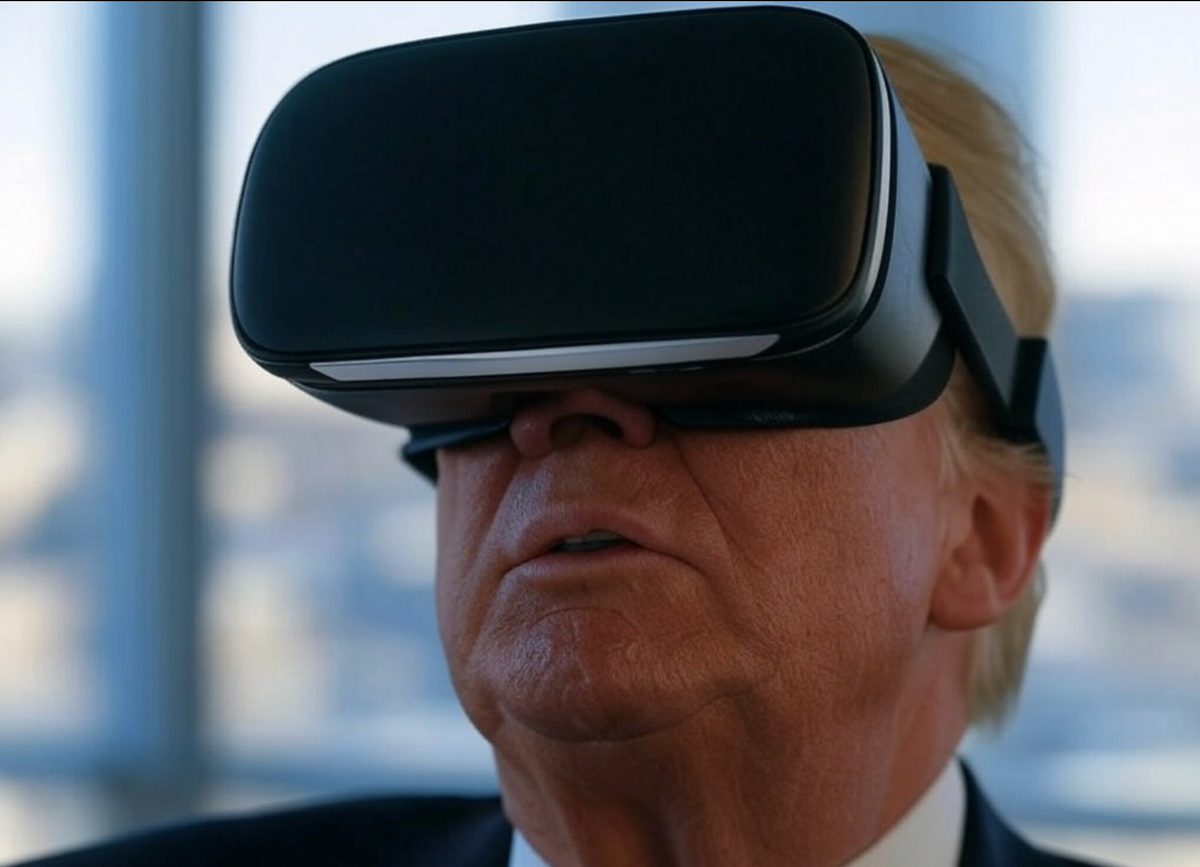Bipartisan bill creates panel to help Trump make the US a global XR leader
Commerce department officials will advise the president on how to ensure the US plays a guiding role in this fast-growing market.

Lawmakers in the House and Senate have introduced a bipartisan bill that orders the Department of Commerce to establish an advisory panel which will be tasked with helping President Trump steer the US to global leadership in immersive technology.
The bill describes this fast-growing category as "the next major computing platform" and calls for action to ensure it is "imbued with the fundamental values of the United States."
Immersive technology (XR) includes VR, which plunges users into fully digital environments through head-mounted displays and AR, which overlays content onto the real world using computer vision. Haptics adds tactile feedback, enabling users to “feel” sensations in virtual spaces.
XR is becoming increasingly popular across industries like retail, training, and entertainment, offering interesting new experiences people are willing to pay for. It's also popular with the military industrial complex, enhancing training, simulation and operational decision-making.
When and where was XR invented?
Immersive technology was created in the US, home to companies that still lead the world in XR. The first-ever piece of tech in this category is widely considered to be the Sensorama, a multi-sensory simulator created in the 1960s by Morton Heilig, which combined visuals, sound, vibrations, and even scents to immerse users in a virtual environment.
However, other nations, including competitors like the People’s Republic of China, have "recognised its transformative potential and are executing robust strategies to dominate the sector," the new bill warns.
"This technology will impact all sectors of society, creating new employment opportunities, economic incentives, and innovative ways of communicating, learning, and engaging with the world," it continues.
Both the National Science and Technology Council and the Department of Defense have designed XR as a critical technology due to its significance for both national security and economic competitiveness.
The Immersive Technology Act

Representatives Suzan DelBene, D-Wash, and August Pfluger, R-Texas joined Senators Marsha Blackburn, R-Tenn, and Mark Warner, D-Va to introduce the United States Leadership in Immersive Technology Act on Wednesday.
Despite being home to some of the world’s largest XR content and hardware producers, the US "lags behind" other countries in "creating a clear roadmap for applying them to commercial and personal use", the group said in a statement.
The US risks "relinquishing" a guiding role in creating XR standards, they added.
"We cannot allow ourselves to be left behind in the burgeoning XR field,” said Representative DelBene, who serves as Co-chair of the Virtual, Augmented, and Mixed Reality Caucus. "As our world becomes increasingly technological, it is crucial that we prepare to compete effectively on the global stage while protecting our interests. This legislation will help us catch up to other global leaders and regain our foothold in creating national standards."
Senator Blackburn said the Immersive Technology Act "would make certain we can compete with adversaries like the Chinese Communist Party and safeguard national security as virtual reality and augmented reality become more prevalent on the world stage."
China has been "aggressively investing" in XR tech, posting a "threat to our economic and national security interests," Representative Pfluger warned.
"Our legislation will ensure the United States maintains global leadership through a national strategy in this emerging technology," he added.
Have you got a story to share? Get in touch and let us know.




